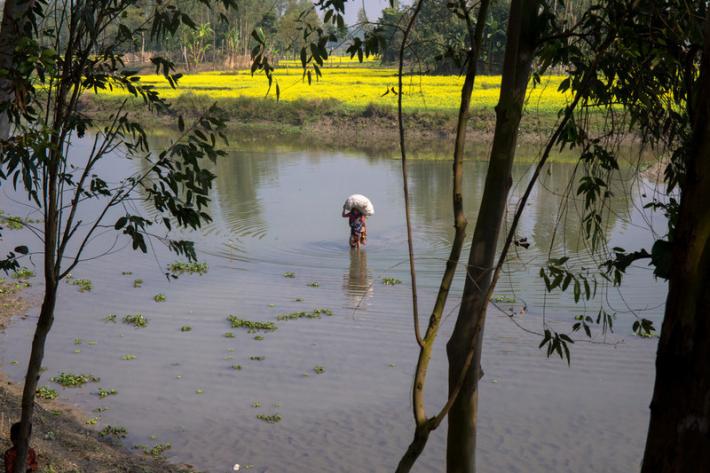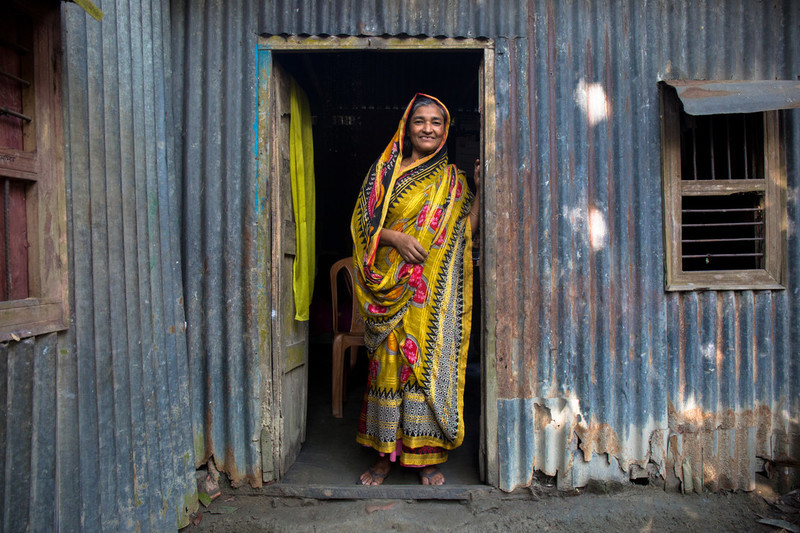Spotlight
A selection of resources from across the Federation

HIV Theory of Change
Our HIV Theory of Change is to clarify the goals and vision of IPPF’s HIV programme and to articulate the different pathways and strategies IPPF uses to contribute towards its HIV goals and vision.
Filter our resources by:


| 03 April 2019
Improving the quality and availability of post-abortion care in a humanitarian crisis
The world is facing stronger and longer natural disasters, protracted complex emergencies, conflicts and epidemics. These humanitarian crises can expose weakness in health systems, with particularly serious consequences for women and girls in need of reproductive health care. To improve the quality and availability of post‑abortion care during a flood, the University of Leicester and International Planned Parenthood Federation South Asia Region (IPPF-SAR), in collaboration with the Government of Bangladesh, developed and measured the impact of an integrated intervention package, called RHCC. First tested in a flood-prone area of Bangladesh, this novel approach includes: i) Pre-positioning medicines and supplies, using the UNFPA’s Inter-Agency Reproductive Health Kit 8; ii) Capacity building of service providers; and iii) Community awareness raising. Supported by IPPF's Innovation Programme, the project aligns with IPPF’s commitment to ensuring that crisis-affected populations receive timely, quality, life-saving, gender-responsive and inclusive sexual and reproductive health services.

| 08 February 2018
Small scale innovation in Bangladesh during times of crisis: ensuring reproductive care to local communities
In times of humanitarian crises and disasters, the inability to access health care during floods can have serious repercussions on the local community. As part of their Innovation Programme project, our South Asia office in collaboration with the University of Leicester and the Government of Bangladesh provides reproductive health kits to health centres located in areas most prone to seasonal flooding. Known as 'Kit 8' it contains three months’ worth of medicine and equipment for the management of miscarriage and complications of abortion and menstrual regulation in emergency situations, essential to minimize associated morbidity and mortality. Medical staff are trained to administer procedures and provide post-procedure care. While abortion is considered illegal in Bangladesh, menstrual regulation, which has been a part of the country’s family planning program since 1979, is allowed up to 10–12 weeks after a woman’s last menstrual period. Photography © IPPF/Victoria Milko
| 05 April 2017
Improving the sexual health of young people after Cyclone Winston, Fiji
Even before Cyclone Winston, there was very little knowledge about contraception and sexually transmitted infections in Fiji. IPPF health professionals are now providing the affected population with counselling and advice on family planning and sexual health.
| 01 April 2017
Discovering family planning by surviving Cyclone Winston, Fiji
For many mothers in Fiji, the IPPF outreach established after the Cyclone Winston were the first place where they heard about family planning. They can now decide how many children they want. Read more stories
| 01 April 2017
A pregnant mother's story during Cyclone Winston, Fiji
Sulueti was pregnant when the Cyclone Winston hit Fiji. Thanks to IPPF, she received all the essential care and supplies she needed for her pregnancy. Meet all the mothers and community leaders
| 01 April 2017
Ending gender-based violence: Rebuilding Fiji after Cyclone Winston
Gender-based violence is endemic in Fiji. IPPF staff and community leaders are working to eradicate it. "I just tell my community: it's time to change." Meet the people behind this change















